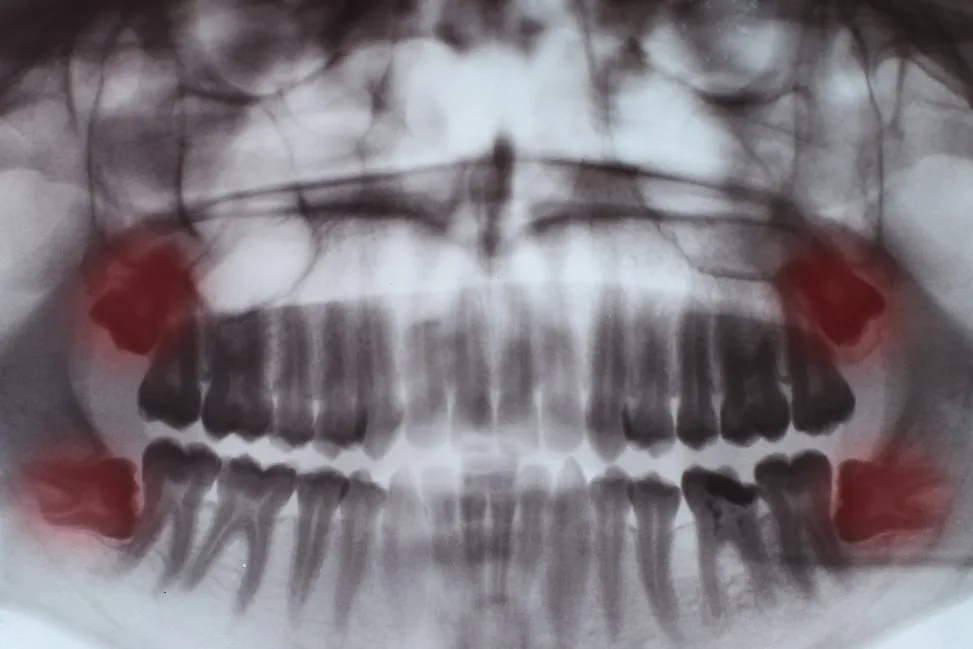When a patient is advised to have their wisdom teeth removed, he/she may be wondering what the process will entail. Our dentists at Antoine Dental Center want you to know that it’s common for people to have questions about what happens during and after surgery. We’ve compiled a list of some of the most frequently asked questions by patients who are considering this procedure, so you can get answers before your visit with us. You’ll find out how long recovery takes, which kind of anesthesia we use here at our office, and more!
Read on for more information about wisdom teeth removal procedures and learn how we can help take care of your oral health needs today!

Why do wisdom teeth need to be removed?
Wisdom teeth cause pain and infection in the gums, crowding other teeth and causing tooth decay and damage. The most important reason they need to be removed is that they may become impacted which means that there’s not enough room for them to come out naturally. For example, if one wisdom tooth becomes stuck it could result in a lifetime of dental problems like acute infections (i.e., sinusitis) or even rotted out teeth!
Who performs tooth extractions?
Tooth extraction is performed by a dentist or oral surgeon. An extraction involves cutting off the tissues which are holding the tooth in its socket, breaking off the tooth at its weakest point (usually close to the gum) using forceps, and then pulling it out of your mouth with pliers.
What preparation is needed before the extraction?
Antoine Dental Center would advise you not to eat anything for 12 hours prior to the surgery. This will save you from the discomfort of vomiting, which can interfere with anesthesia.
Will my teeth shift following my teeth removal?
A wisdom teeth removal is unlikely to cause your teeth to shift. For the majority of people, following a removal procedure, a common occurrence is having a space for between one and two millimeters before the gum reappears in the empty space formerly occupied by their wisdom teeth.
What is recovery like?
Recovery from wisdom teeth removal is typically not too bad, and most people heal in a few days. They may experience some swelling and soreness after the surgery, but this goes away within a couple of days.
What are some problems that can arise if I do not remove my wisdom teeth?
Wisdom teeth are under-developed third molars, which can cause pain, swelling, or even infection if they are not removed. If these problems persist, it is necessary to have them extracted to relieve the pressure they are causing on nearby nerves and other structures in the mouth. They likely will never develop fully so it is best to have them taken out.
Can I be sedated during my wisdom teeth removal?
Sedation is often necessary during wisdom teeth extractions to ensure the patient stays calm and relaxed. Sedatives slow down the nerves and muscles, so people do not feel as much pain or stress, which can help you stay relaxed and calm.
Will I feel pain during the procedure?
You shouldn’t feel any pain as your wisdom teeth are removed because the area will be numbed beforehand by a local anesthetic injection into the gum line where the roots of your wisdom teeth are located.
What is the recovery period for wisdom teeth extractions?
It typically takes a week to recover from wisdom teeth removal, but it can take up to 2 weeks. Goals for the recovery period include getting a good night’s sleep and following a soft food diet during your recovery phase. You should avoid foods that may irritate the extraction site such as acidic fruit, alcohol, spicy foods, rice/crackers until you’re fully healed.
What should I take to alleviate the pain after my extractions?
Take pain medications to help you with the pain.
After your wisdom tooth or teeth removal, it’s normal to feel sore for anywhere between a day and week. Most of the time people can’t chew for about a day after their procedure, so soft foods are necessary. Painkillers are also necessary because they alleviate pain that is due to nerve damage or inflammation from extraction of an impacted tooth. Tylenol is one example of the many pills available on the market today designed specifically for this purpose.
Will I have sutures (stitches) where the wisdom teeth were removed?
Yes. Your dentist will have to cut open your gums to access the teeth, so you should expect some bleeding and probably some sutures afterward.
Will I swell after my wisdom teeth are removed?
Most people will swell after their wisdom teeth are removed. The swelling can last for about two to five days; it’s all dependent on how much anesthesia the dentist gives you.
What can I eat after my wisdom teeth are removed?
Eating soft, easy to chew foods is best after your wisdom teeth are removed. Avoid spicy or acidic foods such as raw fruits and vegetables or hard crunchy snacks such as potato chips.
Can I smoke after getting my wisdom teeth removed?
We highly advise you to wait. This will allow the socket to heal and diminish the risk of infection. If there are complications, it is best to consult with your dentist or oral surgeon prior to smoking. You’ll want them to know what you’re up to so they can manage pain without restrictions.
